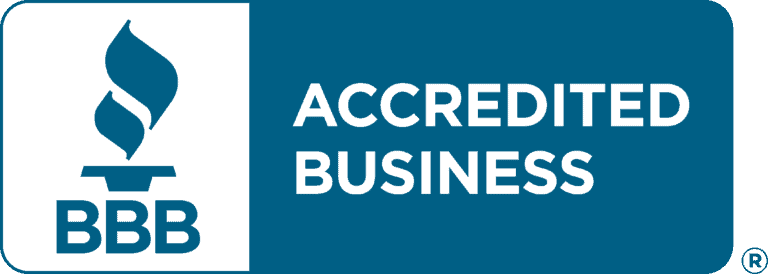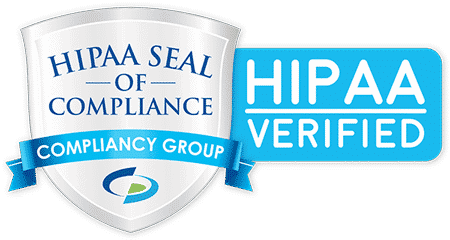As companies continue using digital technology, they strive to innovate their goods and services. They frequently leave cybersecurity—a critical component of their digital architecture—to chance. Weak passwords increase organizations’ cyberattack vulnerability as they continue to digitalize their products.
Expense to Profit introduces business execs to effective strategies to lower operational costs while improving their bottom line. You can not do any of that if your business is crippled due to data breaches from weak passwords.
This article delves into critical issues of how weak passwords contribute to the rise of cybercrime across economic sectors. We will also examine the financial reputational and operational risks companies constantly expose themselves to. We will reveal the benefits of adopting Multi-Factor Authentication (MFA) as a formidable defense against such attacks.
Let’s dive right in:
How Do Cybercrimes Happen?
The noticeable problem of cybercrimes is that there is no direct approach to which it occurs. It can take several forms, affecting businesses around the world. Why? Cybercriminals are becoming more sophisticated every day.
However, one can instantly feel its impact when it has occurred. According to Cybercrime Magazine, cybercrime will cost the world $10.5 trillion annually by 2025. More pressing is that 81% of hacking-related breaches have been caused by exploiting stolen or weak passwords.
These hacks happen as a result of the following:
Reused Passwords
One of the apparent ways a cybercriminal can infiltrate a business’ digital architecture is by using passwords that have been reused. We often use the same password across different accounts and platforms because managing multiple passwords is seemingly difficult.
Once a hacker can detect that the same password can be used across the board, they will exploit it and steal confidential information like trade secrets and customer information. According to a survey. 95% of respondents noted that password reuse was one of the biggest threats to their company. More serious is that reused passwords account for 93% of human risk factors, which expands the attack surface, increasing the risk of cyberattacks.
Weak or Default Passwords
Another way bad actors can exploit companies and siphon sensitive information is through default or weak passwords. According to a survey conducted by TechRepublic, many employees in Fortune 500 companies use passwords so weak that hackers, with the aid of Artificial Intelligence, phishing, or brute force attacks, can hack them in less than one second.
Most employers and employees make use of easy-to-remember passwords like “12345,” “0000,” “password,” or even “qwertyuiop.” To know whether AI can exploit your passwords, visit this platform, and input a random password can get instant results.
Weak Credentials
Weak or stolen credentials can also lead to cybercrime in businesses. Hackers can access your network when they get a hold of your username and password combination.
With the aid of brute force attacks, these hackers can access information such as email, websites, bank account information, and other personally identifiable information (PII).
Consequences of Cybercrime for Businesses
Businesses must adopt comprehensive cybersecurity strategies to drastically lower data breach risks. The consequences of these attacks are enormous. They include the following:
- Financial loss. Cyberattacks can lead to the direct theft of business funds, loss of IP, and even financial fraud, crippling a business.
- Reputational damage. Data hacks and breaches instantly erase customers, partners, and potential investors’ trust and loyalty in a business. Thus, such hacks tarnish a business’s reputation.
- Operational disruption. Data breaches can disrupt critical systems, resulting in operational downtime. This leads to productivity and revenue loss.
- Regulatory non-compliance. Businesses that suffer from data breaches may face legal and regulatory fines for failing to adhere to data protection guidelines.
- Loss of competitive advantage. Cyberattacks that expose a business’s trade secrets and strategies will give rivals an edge in the marketplace.
- Employee morale impact. Cyber breaches can also affect employees’ morale and their productivity levels.
In light of these consequences, business execs should recognize the need to prioritize cybersecurity as an integral component of their strategy.
What is the best mode of approach to protect your business?
Multi-Factor Authentication
Multi-factor authentication (MFA), or two-factor authentication (2FA), is a security process that requires users to provide multiple forms of identification to verify their identity and gain access to a system, application, or digital account.
MFA goes beyond the conventional method of relying solely on a username and password for authentication, adding more layers of security. This extra layer of protection helps prevent unauthorized access, cyberattacks, and data breaches.
MFA involves the following:
- Password or access pin that you create and know.
- A security token, smart card, or an authenticator that generates a one-time passcode must be deployed with other authentication modes.
- Biometric data such as iris scans, facial recognition, and fingerprints. It is quite challenging to recreate this information.
Combining these elements considerably improves security because even if an attacker obtains one of the factors (i.e., a password), they will still require the other factor(s) to gain access.
During MFA logins, when you enter your password, you will be prompted to provide a code from your smartphone or biometric information before access is granted.
Benefits of MFA
Multi-factor authentication provides several benefits to businesses. They include:
- Enhanced security. MFA adds a layer of protection beyond passwords, making it significantly harder for unauthorized users to access accounts or systems.
- Mitigation of credential theft. MFA helps prevent successful attacks such as phishing, where attackers trick users into divulging their passwords. Even if attackers obtain passwords, they would still need the second factor.
- Compliance and regulatory requirements. Many industries and regulatory frameworks require businesses to implement robust security measures like MFA to protect sensitive data.
- Reduce data breach impact. MFA limits the potential damage of a data breach since unauthorized access is impeded, reducing the likelihood of data exposure.
- Cost savings. Implementing MFA can prevent the need for costly incident response, damage control, and legal actions following a successful cyberattack.
Implementing MFA is a prudent step towards safeguarding your business and minimizing the impact of cyber threats. Remember, implementing MFA should be a holistic approach for everyone in your business – senior management and employees.
Conclusion
Most businesses often overlook the potential for cybercrime until it is too late. Discussing what is currently in place at your business and what additional options are available can prevent many potential issues from ever happening. Reach out to us today to discuss what can be put in place to stop your business from being the next target or victim. Expense to Profit is a leading cost-reduction consultancy created to help businesses improve their profit margins while lowering expenses. We can improve your bottom line with proven and tested strategies tailored to your needs.
Call today for a free consultation for expense reduction analysis.
Published by Marc Freedman






